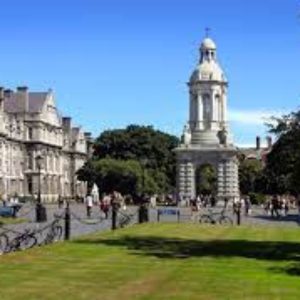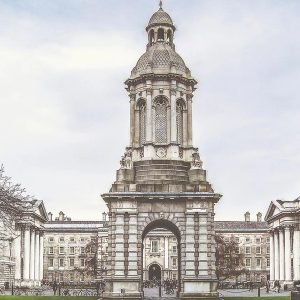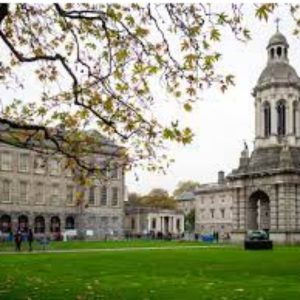Study in France

About France:
France, located in Western Europe, is renowned for its rich history, culture, and artistic heritage. It’s a country that seamlessly blends old-world charm with modern innovation. Iconic landmarks like the Eiffel Tower, Louvre Museum, and Notre-Dame Cathedral adorn its cities, particularly Paris, a global center for art, fashion, and cuisine. France’s diverse landscapes, from the picturesque countryside of Provence to the glamorous French Riviera, offer stunning natural beauty. Renowned for its contributions to philosophy, literature, and science, France maintains a strong commitment to education and research. With its vibrant culture, delectable cuisine, and historical significance, France captivates visitors and residents alike with its timeless allure.
Study in France in English
Shocked? We know you wouldn’t have expected this. Many understudies are neglecting France because they need to learn French in order to study there. But yes it is true France’s universities have started using the English language for directing students regardless of their local dialects. That means worldwide understudies would now be able to contemplate all the courses in English even though their French is frail. Though traditionally more Masters courses in France were taught in English, Bachelor’s degrees in France in English are becoming normal, too.
Top Universities In France




WHY CHOOSE FRANCE – FROM A STUDENT PERSPECTIVE
France’s educational system is world-renowned, with a focus on fostering critical thinking and creativity. As a top destination for international students, France offers a unique blend of academic excellence and cultural immersion, making it a truly unforgettable experience. It stands out as an excellent choice for higher education due to its prestigious universities, world-class research facilities, and a commitment to academic excellence. Renowned institutions such as École Polytechnique, Paris School of Business, Schiller International University and NEOMA Business School etc consistently rank among the top globally, offering a wide range of programs across disciplines. The country’s emphasis on innovation and research is evident in its numerous Nobel laureates and Fields Medalists. Additionally, international students benefit from a diverse and dynamic cultural experience. The allure of studying in iconic cities like Paris, known for its intellectual and artistic vibrancy, adds to the overall appeal, making France an attractive destination for those seeking a high-quality and culturally enriching higher education experience. Whether you seek academic excellence in business, engineering, art, or literature, France offers an enriching experience alongside diverse cultural opportunities, making it an ideal destination for international students.
However, France has long been considered the fashion capital of the world, and for good reason. It’s home to some of the most prestigious fashion houses, like Chanel, Dior, and Louis Vuitton, and its fashion scene is a vibrant mix of established brands and up-and-coming designers. This makes it an ideal place to study fashion, as students will have access to a wealth of resources and opportunities. This immersive environment, coupled with French schools’ emphasis on traditional craftsmanship and cutting-edge design, fosters a deep understanding of the fashion world and prepares students to become future leaders in the industry. Renowned institutions such as IFA Paris – International Fashion Academy, Grenoble Ecole de Management, ESMOD France etc.

INTAKES
September
DEADLINES
Varies from university to university
PASSPORT VALIDITY REQUIREMENT
Validity should extend 3 months after the intended date of departure.
LIVING COST
While living costs in France will depend on the city, type of accommodation and one’s lifestyle, it is estimated that around 1200-1800 euro is enough to cover necessities such as food, transportation, utilities and accommodation for a month in Paris While it would take approximately 800-1200 euro in other cities.
PART TIME JOB
18-23 euro per hour : 20-hour weekly
Frequently asked Questions
In addition to around 250 “grandes écoles”, 83 public universities have in France. These give courses in inclusive range of subjects, catering for around 80% of tertiary-level students. France also offers a selection of highly admire art and architecture schools, as well as colleges specializing in fields such as fashion, film, hospitality, journalism, performing arts and social work.
Many French universities and other higher education contributor are organized into brunches, known as PRES (short for pôles de recherche et d’enseignement supérieur), which bring together universities, research institutes and specialized schools. Members of each PRES share resources and collaborate on both research and course provision, with degrees sometimes conferred by the overall PRES, rather than a single institution.
Same as Bologna Process, French universities proposed three levels of degree: the licence (completed in three years), the master (requiring an additional two years) and the doctorate (usually an additional three years). Master’s degrees are categorized as either ‘research’ (designed for
Students who are from EU/EEA countries they do not need a visa to study in France. Those who are from elsewhere they will need to apply for an extended-stay visa with residency permit (VLS-TS), either via process of the CEF or the nearest French embassy. When considering visa applications, officials are needed to consider applicants’ academic background, level of preparation, study plans, and proficiency in the French language. Applicants are also instructed to show they have sufficient financial resources – around €615 (US$670) per month, the equivalent of a base-rate monthly governmental scholarship.
While maximum undergraduate programs are in French taught, the country proposes a large selection of English-taught courses at postgraduate level. Government agency proposes a searchable online database of English-taught programs, and people can also search for relevant courses in France using QS Course Finder.
Depending on the language in which the program is taught, students can be asked to provide proof of proficiency in either French or English. This may be through evidence of completing an earlier degree in the relevant language, or by giving a language test such as the DELF, DALF, IELTS or TOEFL.
As you expect, living costs are higher in Paris than elsewhere in France. Edumig suggests a monthly budget of €1,000 for students in Paris, and €800 for those exterior the capital. Even so, the comparatively low tuition fees go a long way towards offsetting higher living expenditure even in the capital – this overall affordability is one of the factors underlying Paris’ position at the top of the QS Best Student Cities index, a position it has now held for three years running.
Students who are from within the EEA and Switzerland are free to pursue work alongside their studies without any bindings. Those who are from other countries they can work up to 965 hours per year (equivalent to 60% of a full working year), as part of the authorization granted with the VLS-TS visa and residency permit. Who completed their Internships as part of a study program which is not counted within this.
All international students have the right to work part-time as long as she/he is registered in an institution providing right to the student scheme of Social Security. The right to work applies to all students registered in their first year (including students who come to France for the first time).
The system of European education gives the option of assessment on the basis of MOI, having an IELTS is like having cheery on the top of the cake. IELTS assists to create students profile stronger but it is NOT MANDATORY. You need to have skills to pass the university and Edumig interview. They are pretty simple and mainly focus upon student motivation to study and their language skills. For documentation process student can go through our checklist section.
Maximum of scholarships can be applied through Edumig.
The Grandes Écoles of France are higher education establishments that are outside the main framework of the system of French public university. The Grandes Écoles are highly selective, elite, and prestigious institutions, their graduates have dominated upper levels of the private and public sectors of French society for decades.
Obviously, very much possible. If student have studied either RNCP or Grand Ecoles certified master degree program from any school of France, student will be able to apply for APS visa which is in layman terms, ‘post study job search visa’. Once student get a job, they can convert your visa into Work permit.
Talk to Our Best Career Counselors
